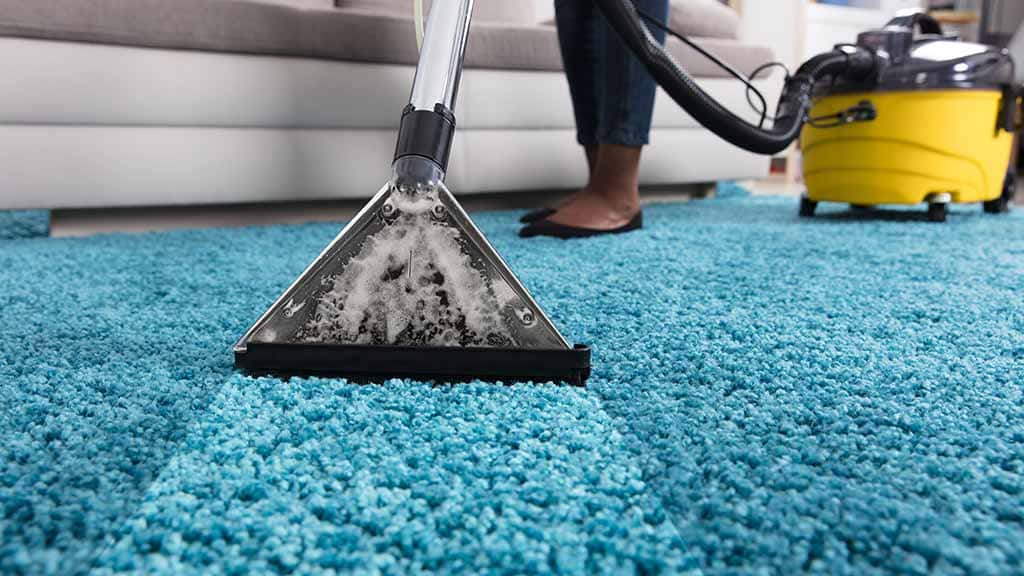The Power of Houseplants: Enhancing Health and Nurturing Nature
Houseplants have become increasingly popular in recent years, not only for their aesthetic appeal but also for their numerous health benefits. These green companions have the power to improve air quality, reduce stress levels, boost mood, and even enhance productivity. In addition to their health benefits, houseplants are relatively easy to care for, making them an ideal choice for both experienced and novice plant enthusiasts. In this article, we will explore the various health benefits of houseplants and provide some essential care tips to help you maintain a thriving indoor garden.
The Impact of Houseplants on Indoor Air Quality
The Impact of Houseplants on Indoor Air Quality
Indoor air quality is a growing concern for many people, especially those who spend a significant amount of time indoors. With the rise of modern buildings and the increased use of synthetic materials, the air we breathe indoors can often be more polluted than the air outside. This is where houseplants come in. Not only do they add beauty and life to our living spaces, but they also have the power to improve indoor air quality.
Houseplants have the unique ability to filter and purify the air by removing harmful toxins and pollutants. They do this through a process called phytoremediation, where they absorb these pollutants through their leaves and roots, and convert them into harmless substances. Some of the most common pollutants that houseplants can remove include formaldehyde, benzene, and trichloroethylene, which are commonly found in household products, furniture, and cleaning agents.
One of the most effective houseplants for improving indoor air quality is the snake plant, also known as Sansevieria. This plant is known for its ability to remove toxins such as formaldehyde and benzene from the air. Another great option is the spider plant, which is not only easy to care for but also effective at removing pollutants like carbon monoxide and xylene. Other popular choices include the peace lily, aloe vera, and English ivy.
In addition to removing pollutants, houseplants also increase humidity levels in the air. This is particularly beneficial during the winter months when indoor heating can cause the air to become dry. By releasing moisture through a process called transpiration, houseplants can help alleviate dry skin, sore throats, and respiratory problems. They act as natural humidifiers, creating a more comfortable and healthier living environment.
Caring for houseplants to ensure their optimal air-purifying abilities is relatively simple. First and foremost, it is important to choose the right plant for your space. Consider factors such as lighting conditions, temperature, and humidity levels. Different plants have different requirements, so it is essential to do some research before making a purchase.
Once you have chosen the right plant, proper watering is crucial. Overwatering can lead to root rot, while underwatering can cause the plant to wither and die. It is important to find the right balance and water the plant when the top inch of soil feels dry. Additionally, it is important to provide adequate drainage to prevent water from pooling at the bottom of the pot.
Proper lighting is also essential for the health of houseplants. Most houseplants thrive in bright, indirect light. Placing them near a window or using artificial grow lights can help ensure they receive the necessary amount of light. However, it is important to avoid placing them in direct sunlight, as this can lead to leaf burn.
Regularly dusting the leaves of houseplants is another important aspect of care. Dust can accumulate on the leaves, blocking their ability to absorb light and perform photosynthesis. Gently wiping the leaves with a damp cloth or using a soft brush can help keep them clean and healthy.
In conclusion, houseplants have the power to improve indoor air quality by filtering and purifying the air we breathe. They remove harmful toxins and pollutants, increase humidity levels, and create a healthier living environment. By choosing the right plant, providing proper care, and incorporating houseplants into our indoor spaces, we can reap the numerous health benefits they offer. So why not bring a touch of nature indoors and enjoy the power of houseplants?
Boosting Mental Health and Well-being with Houseplants
Houseplants have long been admired for their beauty and ability to liven up any space. However, their benefits extend far beyond aesthetics. In fact, numerous studies have shown that houseplants can have a positive impact on our mental health and overall well-being.
One of the key ways in which houseplants boost mental health is by reducing stress and anxiety. Research has found that simply being in the presence of plants can help to lower blood pressure and heart rate, leading to a greater sense of calm and relaxation. In addition, the act of caring for plants can be a form of mindfulness, allowing us to focus on the present moment and find solace in the simple act of nurturing another living thing.
Furthermore, houseplants have been shown to improve air quality, which can have a direct impact on our mental well-being. Indoor air pollution is a significant issue, with common pollutants such as formaldehyde and benzene being released from furniture, carpets, and cleaning products. However, plants have the remarkable ability to absorb these toxins and release oxygen, creating a healthier environment for us to breathe in. This cleaner air can lead to improved cognitive function and a greater sense of clarity and focus.
In addition to their mental health benefits, houseplants can also have a positive impact on our physical health. Studies have found that having plants in our living spaces can help to reduce the frequency and severity of headaches, as well as improve our sleep quality. This is due to the fact that plants release moisture into the air, increasing humidity levels and reducing the dryness that can lead to these issues. Furthermore, the presence of plants has been shown to boost our immune system, helping to ward off common illnesses and keep us healthier overall.
Caring for houseplants is relatively simple, but there are a few key tips to keep in mind. Firstly, it’s important to choose the right plant for your space. Consider factors such as light levels, temperature, and humidity when selecting a plant, as different species have different requirements. Additionally, be sure to water your plants regularly, but avoid overwatering, as this can lead to root rot. It’s also a good idea to periodically dust the leaves of your plants to keep them clean and free from pests.
Another important aspect of plant care is providing them with the right amount of light. Most houseplants thrive in bright, indirect light, so be sure to place them near a window or in a well-lit area of your home. However, be cautious of placing them in direct sunlight, as this can cause their leaves to burn. If you have a particularly dark space, there are also plants that can thrive in low-light conditions, such as snake plants and pothos.
Finally, it’s important to regularly fertilize your plants to ensure they receive the nutrients they need to thrive. There are many different types of fertilizers available, so be sure to choose one that is appropriate for your specific plants. Follow the instructions on the packaging for the correct dosage and frequency of application.
In conclusion, houseplants have the power to improve our mental health and overall well-being. By reducing stress, improving air quality, and providing numerous physical health benefits, they can have a profound impact on our lives. By following a few simple care tips, we can enjoy the beauty and benefits of houseplants for years to come. So why not bring a little bit of nature indoors and experience the power of houseplants for yourself?
Essential Care Tips for Healthy Houseplants
Essential Care Tips for Healthy Houseplants
Now that you understand the numerous health benefits of having houseplants, it’s important to know how to properly care for them to ensure their longevity and vitality. Houseplants, like any living organism, require specific care and attention to thrive in an indoor environment. By following these essential care tips, you can create an optimal environment for your houseplants and enjoy their beauty and benefits for years to come.
First and foremost, it’s crucial to understand the watering needs of your houseplants. Overwatering is one of the most common mistakes made by plant owners, leading to root rot and other issues. The key is to water your plants when the top inch of soil feels dry to the touch. This will prevent waterlogged roots and promote healthy growth. Additionally, it’s important to use room temperature water to avoid shocking the plants.
In addition to watering, proper lighting is essential for the well-being of your houseplants. Most houseplants thrive in bright, indirect light. Placing them near a window that receives filtered sunlight is ideal. However, be cautious of direct sunlight, as it can scorch the leaves. If your home lacks natural light, you can supplement it with artificial grow lights specifically designed for plants.
Another crucial aspect of houseplant care is providing them with the right amount of humidity. Indoor environments tend to be drier than the natural habitats of many houseplants, which can lead to dry and crispy leaves. To increase humidity, you can place a tray filled with water near your plants or use a humidifier. Misting the leaves occasionally can also help, but be careful not to overdo it, as excessive moisture can lead to fungal diseases.
Proper fertilization is also important for the health of your houseplants. While some plants may require more frequent feeding, a general rule of thumb is to fertilize your plants every two to four weeks during the growing season (spring and summer) and reduce the frequency during the dormant period (fall and winter). Use a balanced, water-soluble fertilizer and follow the instructions on the packaging to avoid overfeeding, which can damage the plants.
Regular pruning and grooming are essential for maintaining the appearance and health of your houseplants. Remove any dead or yellowing leaves to prevent the spread of diseases and pests. Additionally, trimming back leggy stems will encourage bushier growth. Grooming your plants by wiping the leaves with a damp cloth will not only remove dust but also allow them to absorb more light.
Lastly, be mindful of pests that can infest your houseplants. Common pests include aphids, mealybugs, spider mites, and scale insects. Regularly inspect your plants for any signs of infestation, such as sticky residue, webbing, or distorted leaves. If you notice any pests, treat them immediately with organic insecticidal soap or neem oil, following the instructions carefully.
By following these essential care tips, you can ensure the health and vitality of your houseplants. Remember to observe your plants closely and adjust your care routine accordingly. With proper care, your houseplants will not only enhance the aesthetic appeal of your home but also contribute to a healthier and more enjoyable living environment.In conclusion, houseplants have numerous health benefits and can greatly contribute to improving indoor air quality, reducing stress levels, and boosting overall well-being. Additionally, they can enhance the aesthetic appeal of any space and provide a sense of tranquility. To ensure their optimal growth and health, it is important to provide proper care such as adequate watering, appropriate lighting, and regular maintenance. By incorporating houseplants into our living spaces and following care tips, we can harness the power of nature to promote a healthier and more enjoyable environment.



